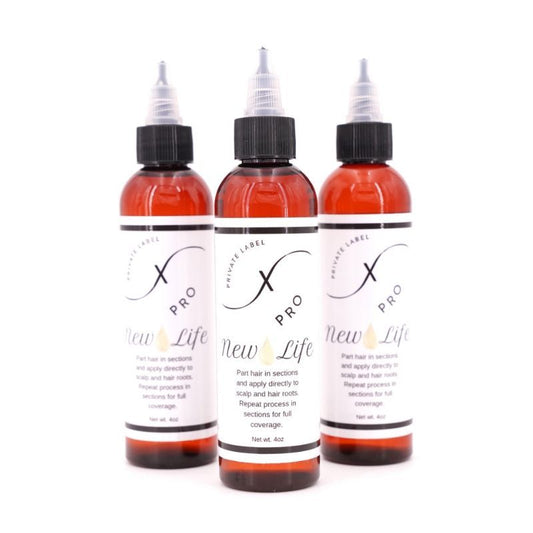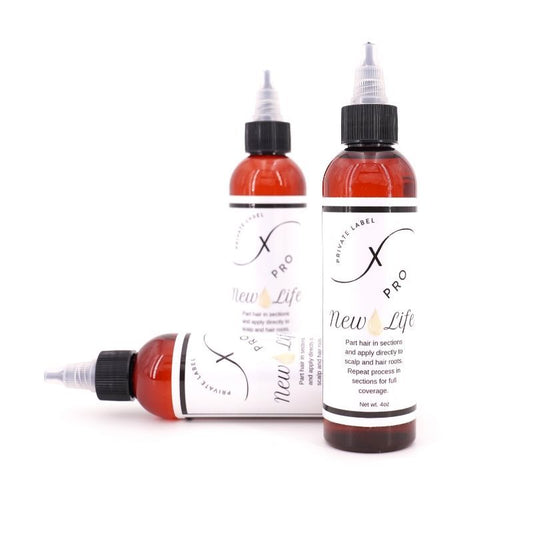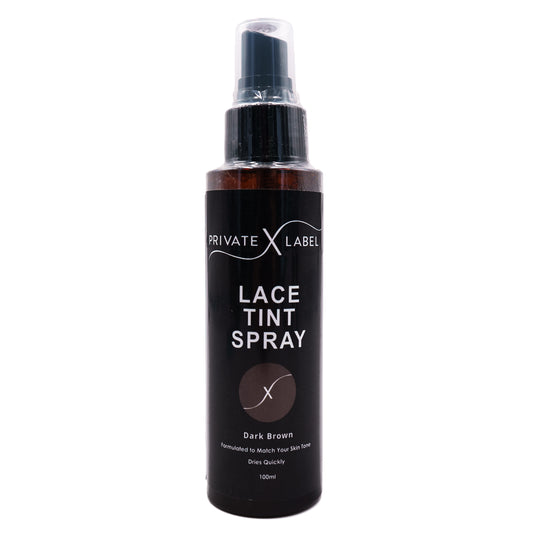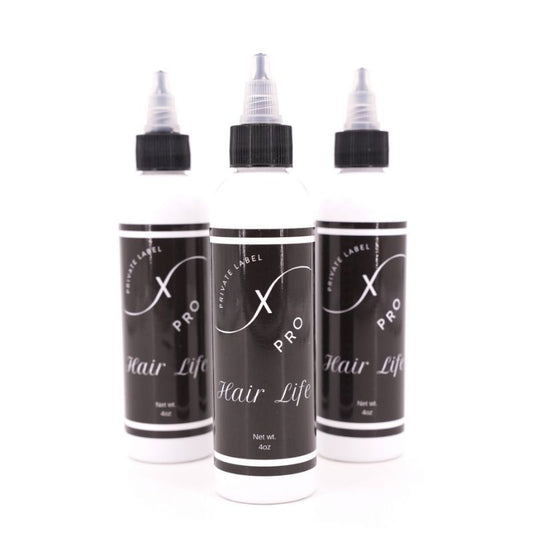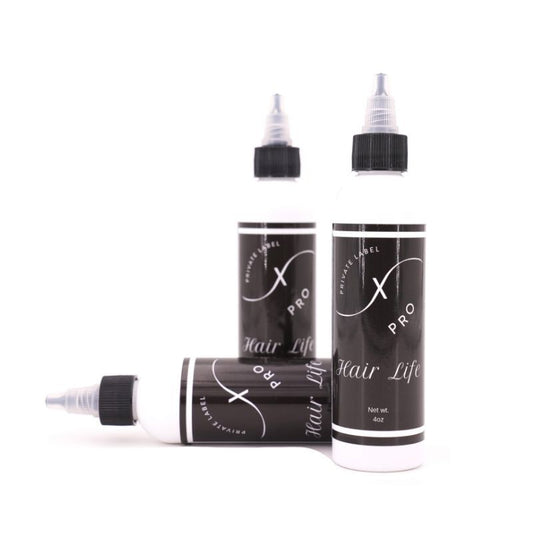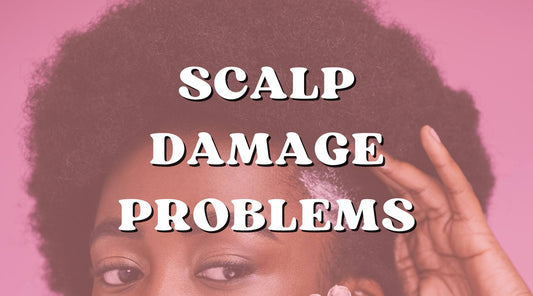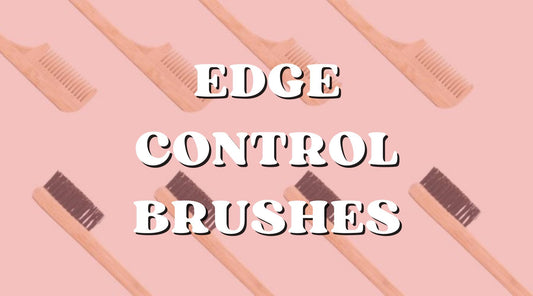1260 Memorial Drive
Atlanta, Georgia 30316
404-458-1330
Does Genetics Have an Impact on Your Hair Length?
Mikey MoranIf you're reading this article, then you more than likely have been growing your hair for years.
For many of us, hair length is extremely important. You're trying new products and rocking protective styles but have yet to see your hair grow past a certain hair length.
Who wouldn't love a 26 Inch Wig?!
It can be frustrating when you work so hard to achieve a goal and watch everyone else get amazing results while you remain stagnant. 😔
If this sounds like your experience, you may be experiencing a lack of hair length due to your genetics.

Why Your Hair Isn't Growing Long
You're doing everything correctly.
You're keeping up with your trims, doing deep conditioners, sleeping with a satin or silk bonnet, and using minimum heat styling.
The only reason why your hair won't reach past a certain length is genetics.
Genetics controls everything about you.
From your skin tone, bone structure, height, and eye color, all of these things are under the control of genetics.
Genetics has a lot to do with your highest potential. If you have been doing everything you can to improve the health of your hair, then you're at your terminal hair length.
Meaning you are at the maximum hair length that you can personally reach. Some people can grow hair down to their hips without even trying, while some people can only grow their hair to their shoulders no matter what they do.
Maximum hair length is all determined by genetics. The only way you can blame genetics is if, day in and day out for years, you have been doing everything you possibly can to retain length, and yet it is still stagnant at a specific hair length.
The result is due to your hair's life cycle, the anagen phase, the catagen phase, and the telogen phase.
The anagen phase is the stage in which the hair grows from the scalp, and the catagen phase is the resting phase.
The telogen phase is the phase in which your hair falls out and starts again at the anagen phase.

"Shocked" Hair
Can certain events "shock" hair and fundamentally affect length?
Elizabeth Cunnane Phillips is a trichologist at the Philip Kingsley Clinic in New York City, and she has studied hair and the scalp for over 22 years to clarify whether hair stops growing at a certain length or not.
"Lifestyle and general health factors can contribute to that picture," notes Cunnane Phillips.
"Stressful periods can cause an increase in the amount of hair we lose. It is not uncommon that three months or so following a tough time, we can see an increase in hair loss."
Does hair growth decrease as we age?
"As we live and breathe, we grow hair, but older age can bring with it variables that are not optimal for hair growth," says Cunnane Phillips.
"Thus, it seems that it grows more slowly. But a quick look around at the people in our lives suggests that they are still trimming and coloring, so perhaps the frequency has changed somewhat, but we are still growing hair!"
Many argue that there is a certain age where hair is the healthiest.
"There is no magic age for 'healthiest' hair," says Cunnane Phillips. "We see young women, who many consider to be at their prime, with hair issues.
There are so many variables that can affect our ability to grow hair that we treat it on a case-by-case basis.
Variables that can influence its presentation and growth can be present at any age."
Also know How Menstrual Cycle Affects Your Hair.

Does Hair Texture/Curl Pattern Affect Length?
For women with looser curls, it's not that their genetics make their hair grow longer.
It is just that they have an easier time doing so. Kinky coily hair is often extremely fragile. Its bends and curves make it reasonably easy to break. Someone with a looser texture may not have this problem.
As the author of The Natural Haven pointed out, most people are genetically predisposed to grow hair that is ankle length.
Although many people quote the hair growth phase as lasting 2-6 years, the truth is that mathematical calculations estimate that an average normal growth phase may be as long as 12-14 years.
This period would correspond to around ankle length for many. It would, therefore, be more accurate to say long hair is genetic and most people are genetically disposed to grow very long hair."
All this means is that if you have a more delicate hair texture or hair that breaks easily, you have to treat your hair differently than someone who has a looser curl pattern or straighter hair.
You should always treat fragile hair with extra care. Free-flowing kinky hair has the disadvantage of being susceptible to breakage.
To combat this and grow longer hair length, protective styling is the best option because kinky hair textures thrive in low-manipulation environments.
The less you have to comb, style, or touch your hair, the less room there is for it to break off. Think about men and women with long locs.
They have no issue growing their hair long because their hair flows freely and is under protection.
You may want to try protective styles like two-strand twists, braids, or coils to keep your hair's exposure to manipulation at a minimum.

It Takes Two to Tango!
The truth is that genetics will always play a role in how easy or hard it is to grow your natural hair.
Some people will grow long hair more easily than others. Before you blame your lack of hair length on genetics, you should first ensure that you are caring for your hair properly.
What works for one person may not work for the other!
Try different hair products and treatments, and be sure to use products that are designed to benefit your kind of hair. ✨
Take advantage of protective styling with two-strand twists, wigs, weaves, or even braids. Long wig styles like the 28 Inch Wigs and 30 Inch Wigs.
Make sure you are taking care of your body on the inside as well. Drink a lot of water and eat a holistic diet.
Both genetics and the quality of your attention will determine how long your tresses flow!

